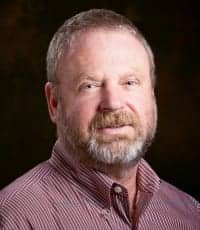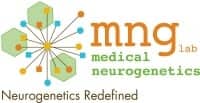The company provides a complete spectrum of clinical care for patients with neurometabolic and other inherited disorders.

Keith Hyland, PhD

John Shoffner, MD
When you enter the state-of-the-art diagnostic and research facility of Medical Neurogenetics (MNG) in Atlanta, you immediately recognize the hallmarks of a successful company. The building is airy, modern, and bright, and provides an environment conducive to active discussion, interaction, and productivity.
MNG was formed by John Shoffner, MD, and Keith Hyland, PhD, in 2008 and has been rapidly expanding ever since. Prior to forming MNG, both had prestigious academic careers. John was associate professor of neurology and molecular medicine at Emory University and then directed the molecular diagnostics program at Children’s Healthcare of Atlanta. He is currently adjunct associate professor in the Department of Biology at Georgia State University. Keith was lecturer in biochemistry, University of London, UK. In 1989, he joined the Baylor University Medical Center in Dallas. He was professor in biomedical sciences at Baylor University and adjunct associate professor of neurology, University of Texas Southwestern Medical Center.
John is a leading expert in the area of mitochondrial disease, and Keith in the field of neurotransmitter disorders. The pair have more than 200 scientific publications and have presented at more than 100 national and international scientific symposiums.
“Many inherited neurological conditions require CSF analysis to allow diagnosis,” Hyland says. “These include movement disorders caused by defective neurotransmitter metabolism, seizure disorders that respond to pyridoxine or pyridoxal phosphate, and cerebral folate deficiency. The latter is being recognized as a major cause of neurological dysfunction.” Keith is very proud to have been involved in the initial discovery of many of these conditions, to have developed several of the tests used for diagnosis, and to have seen MNG become one of the foremost centers in the United States that specializes in CSF testing.
“The study of neurometabolic and mitochondrial disease has always been at the forefront of my clinical and research career,” Shoffner says. “I discovered some of the first epilepsy mutations and some of the first gene mutations that cause mitochondrial disease. Correct mitochondrial function is vital for core cellular processes, including the production of energy that allows cells to grow and work properly. We are now moving to a point where we have sufficient knowledge to begin treating these disorders.”
MNG has become a leading force within the developing sector of neurogenetics. “The company is unique, by providing a complete spectrum of clinical care for patients with neurometabolic and other inherited disorders,” Shoffner says. “This encompasses the whole process, which includes clinical consultation, advanced metabolic and molecular diagnostic testing, treatment, education, and research.”
The reputation of the company is such that patient and sample referrals have grown rapidly. Referrals cover an expansive geographic footprint that includes the United States, Canada, Australia, the Middle East, Europe, and South America.
On the diagnostic front, MNG employs a host of cutting-edge techniques, including advanced biochemistry, enzymology, sequencing using both capillary and next-generation techniques, and live cell analyses. It offers more than 1,100 different tests and is predicting to expand to more than 5,000 in the near future as it moves to provide many more targeted next-generation sequencing panels. New testing approaches are currently being patented.
“The advent of next-generation sequencing has revolutionized our approach to medical genetics,” Shoffner says. “Where a single gene used to be sequenced at a cost of several thousand dollars, we can now examine many thousands of genes for a similar price.”
MNG is developing next-generation sequencing panels targeted to particular neurogenetic sectors. These include seizure disorders, cellular energetics, neurotransmitter disorders, myopathies, muscular dystrophies, hereditary neuropathies, cardiomyopathies, and neurodegenerative conditions. Cost-effective approaches for many other categories of disease are under way.

Medical Neurogenetics
Atlanta
www.mnglab.com
The research background of the MNG owners ensures a continuing research focus within MNG. The company owns a proprietary human tissue bank and a relational database of clinical, metabolic, biochemical, and genetic data. “Our tissue bank and database has significant test-development and drug-discovery implications,” Shoffner says. “The database can be used to select tissue or cell lines from our bank of over 15,000 samples. This is a highly unique resource containing cell lines, muscle, and CSF from patients with numerous biochemically and genetically defined disorders. We are currently in collaboration to test new drugs using cell lines from patients with clearly defined mitochondrial disease. Drugs having a protective effect on mitochondrial function can be beneficial not only to patients with mitochondrial disease, but also to patients with cardiac disease, Alzheimer’s disease, Parkinson’s disease, stroke, and many other disorders where there is secondary mitochondrial dysfunction.”
“Research and development is a vital part of company growth,” Hyland says. “Since starting MNG, we have published over 30 papers, presented at multiple national and international meetings, and have received several federal and privately funded grants. Our research on mitochondrial disease and autistic regression was named as one of the Top Ten Autism Research Achievements by Autism Speaks. We know we are on the right track!”


